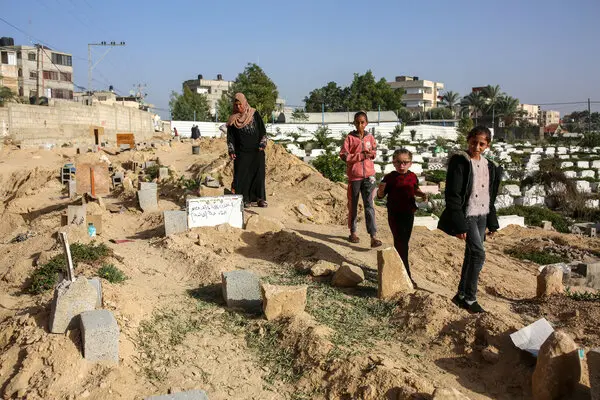Israel reported on Tuesday that 24 soldiers were killed, marking the highest single-day losses since the beginning of its ground war in Gaza. The 24 casualties occurred during heavy clashes as a White House official visited the region for talks on securing more hostage releases. A new Israeli proposal for a two-month pause in fighting was also reported.
Among the 24 soldiers killed, 21 were reservists who died when rocket-propelled grenades hit a tank and two buildings they were attempting to destroy. Prime Minister Benjamin Netanyahu initiated an investigation into the incident, acknowledging it as a “disaster,” while Defence Minister Yoav Gallant described it as a “heavy blow.”
The total number of soldiers killed since the start of Israel’s ground offensive in Gaza has reached 221, increasing pressure on the government. Analyst Israela Oron of Ben-Gurion University of the Negev stated that public demand for clear answers regarding the purpose and goal of the operation in Gaza would intensify.
Fierce fighting continued in Khan Yunis, the largest city in southern Gaza, where the army claimed to have “encircled” the area. Witnesses reported powerful explosions in several locations, including Khan Yunis, Deir al-Balah, and Rafah. Medical charity Doctors Without Borders (MSF) reported that its staff at Nasser Hospital in Khan Yunis felt the “ground shaking.” The Palestinian Red Crescent stated that Israeli forces hit its headquarters in Khan Yunis, causing injuries among internally displaced individuals seeking safety there.
UN agencies and aid groups expressed concerns about the growing threat of disease and famine in Gaza, where 1.7 million people are estimated to have been displaced. Abeer Etefa, the World Food Programme’s senior spokeswoman for the Middle East, warned of a “looming threat of famine.”
The Gaza war erupted following Hamas’s attacks on October 7, resulting in approximately 1,140 deaths in Israel, mostly civilians. In response, Israel launched a relentless offensive, leading to at least 25,490 casualties in Gaza, predominantly women and children.
The conflict also involved the seizure of about 250 hostages by Hamas, with around 132 remaining in Gaza. Israel reported a new proposal for a deal with Hamas, involving the release of hostages in multiple stages over two months, without a commitment to ending the war. The plan suggested Israeli troops reducing their presence in major Gaza cities and gradually allowing residents to return to the north of the territory.
US media reported that White House official Brett McGurk was expected in Egypt and Qatar for talks aimed at securing a new hostage exchange deal. State Department spokesman Vedant Patel reiterated the US belief in a two-state solution as the only path to break the cycle of violence.
Israeli Prime Minister Netanyahu has rejected calls for a Palestinian state, emphasizing the need for “security control over all the territory west of the Jordan River.” EU foreign ministers urged Israel to reconsider its position during meetings in Brussels, emphasizing the importance of a two-state solution.
The conflict in Gaza raised concerns about a wider escalation, with Hezbollah striking the Israeli air control base of Meron for a second time, citing Israeli “assassinations” and attacks on civilians. Additionally, the US and UK launched new air strikes against Yemen’s Iran-backed Huthi rebels in response to their attacks on Red Sea shipping. The Huthis warned of retaliation, stating that “these attacks will not go unanswered and unpunished.”
